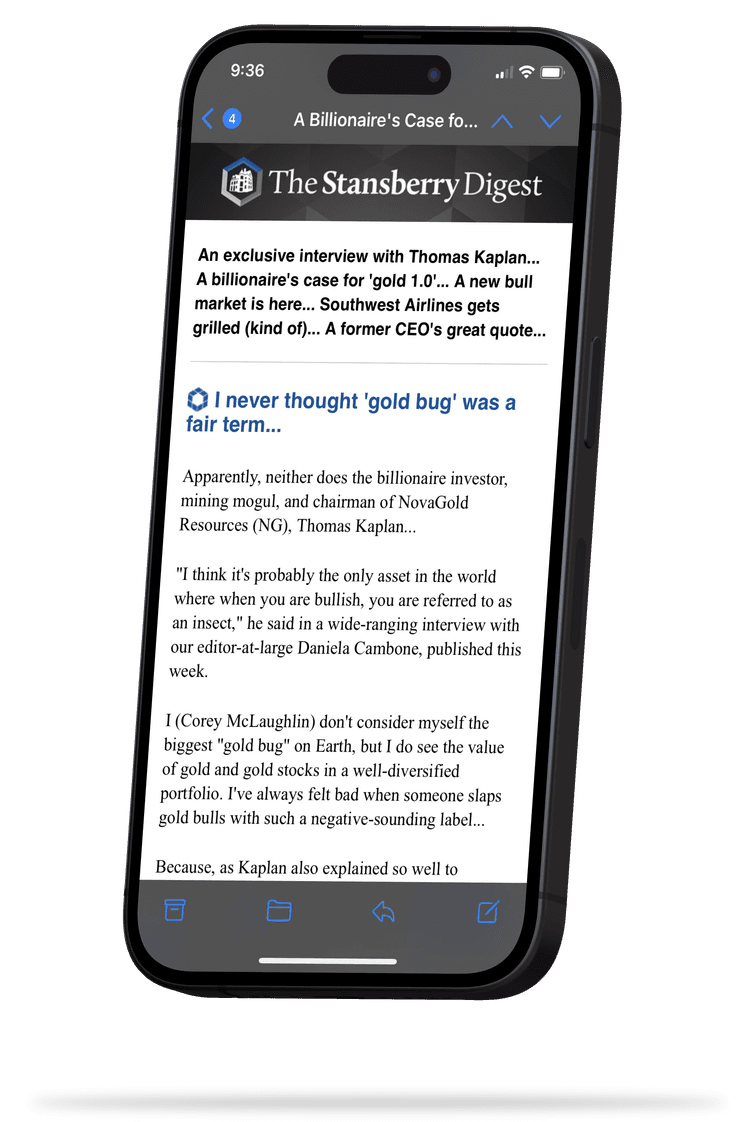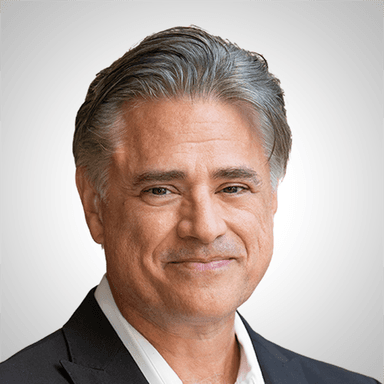The number one way to learn about the market
Investing doesn't have to be as hard as you think. With one email a day, you'll learn everything you need to know to make better choices with your money. See how over a million people are taking control of their wealth.

Proudly Featured In






Learn from the experts
Tap into our network of experienced analysts. From former hedge fund managers, multi-billion-dollar pension fund managers, advisors, traders, professors, accountants, financial lawyers, inventors and doctors, there's not a corner of the market we can't help you understand.
Our team will show you the best ways to protect and grow your money no matter what's happening in the market. We'll be with you every step of the way regardless of your starting point, your risk tolerance or your financial interests. You're guaranteed to find something you like.

Subscribers Worldwide
1M+

Editors & Analysts
33

No. of Products
31

No. of 10x Recommendations
24
Find what works for you
Whether you're just starting out or a seasoned professional, there's something for everyone. Each one of our 30+ research services are designed to protect and grow your wealth.
Join the 1M+ people growing their wealth with Stansberry Research
Given me an edge
Stansberry Research has given me an edge in facing the ever-changing times we are in - not everyone has found it as easy. Thank you, you do a great job.
Mervyn D.
Subscriber since 2013
Cashed out with about a 500% gain
We recently cashed out with about a 500% gain. You do good work. We're a retired couple, on a fixed income, so getting the growth in the IRA is very helpful.
David B.
Subscriber since 2000
Broadened my knowledge
Stansberry Research has broadened my knowledge in so many areas, including options and short sales that I never imagined I'd do. The recommended investments are so comprehensive, I love it!
Laura P.
Subscriber since 2015
I'm richer, smarter, and wiser
I have two degrees, an MBA, and PhD, and I have learned more about business and finance through Stansberry than all my degrees combined. I'm richer, smarter, and wiser today because of you.
Adriano R.
Subscriber since 2013
The means to achieve financial independence
I know the success I have had in the last three months, managing my own financial account and making gains during challenging times is due to the outstanding work and recommendations of Stansberry Research and the availability and support of the team. Partnering with Stansberry has given me the means to achieve financial independence.
Linda
Subscriber since 2020
Returns speak for themselves
I have been a member for years now and am a professional advisor, but I can't express my gratitude any more than looking at the returns I have generated this year by being an avid reader of all your newsletters. These returns speak for themselves. I can't thank you enough and feel honored to have found your services a few years back.
Pete C.
Subscriber since 2015

In the Stansberry Innovations Report, editor Eric Wade and our team of technology experts focus on the most pioneering and disruptive technologies around the world today.
The team looks for early opportunities in new technology trends that span the medical sciences, biotechnology, software, hardware, defense, and cryptocurrencies. These trends will likely play out over several years and decades.

Eric Wade
Editor
Largest Gain of Closed Position
446%
No. of 100%+ Winners
6
Model Portfolio Return vs S&P 500
+10.3%
Publication Overview
Publishing Schedule
Monthly (third Friday of every month) with email updates as needed
Required Capital
Approx. $1000 / Great for beginning investors, retirees, and those planning for retirement
Risk Tolerance
Conservative
Everything you need, all in one place
Nearly 1 in 2 Americans think they don't have enough money to enjoy retirement. We're changing the game. Sign up to get our best ideas every day the market's open.
Trending financial news
We watch the markets 24 hours a day, 365 days a year so you don't have to. Check out the latest issue of The Stansberry Digest, our flagship newsletter.
The Rally Is Real, But So Is the Risk
A chip-war truce… It's not just Nvidia… High demand for low-quality stocks... Wall Street is 'all in,' too… Everything's turning up greedy… The rally is real, but so is the risk… The 'low-interest people' are coming out...
Editor's note: Dan Ferris is off this week, so we're sharing more of our "regular" Digest fare from me (Corey McLaughlin) and Nick Koziol... Dan will be back with his regular Friday essay next week.
 The dark cloud has parted...
The dark cloud has parted...
Over semiconductor stocks, at least.
We mentioned briefly on Tuesday that on a "mixed" day for the U.S. stock market indexes, the tech-heavy Nasdaq Composite Index was the lone gainer and hit a new record high. It was all powered by a 4% rise in Nvidia (NVDA) shares, which hit their own all-time high.
The highflying chipmaker had run into trouble in April. That's when the U.S. imposed new export controls on one of its high-end semiconductor chips, which is popular for performing AI functions. The U
Keep reading with a free account
Get access to the full article, plus access to our entire archive when you enter your email below.

How Seasonality Beats Buy-and-Hold in 2025
Jul 18, 2025
Editor's note: Many investors rely on passive strategies like index funds. But Keith Kaplan, CEO of our corporate affiliate TradeSmith, explains that there's a smarter, more targeted way to make money and sidestep volatility. Adapted from the TradeSmith Daily free e-letter, Keith details how one breakthrough can help investors avoid long slumps and potentially double the market's returns – by focusing only on stocks with the best odds of outperformance.Imagine you're in the year 1850, driving down a dusty old road on a horse-drawn carriage.
Keep reading...

Buy Stocks You Want to Own
Jul 18, 2025
Legendary investor Warren Buffett said it best... "Buy into a company because you want to own it, not because you want the stock to go up."In my experience, a lot of investors make this mistake. They treat stock ownership like a bet. Really, it's an ownership stake in an operating business.
Keep reading...

Episode 421: The Six Levels of Wealth – And How You Can Move Up
Jul 14, 2025
On this week's Stansberry Investor Hour, Dan and Corey are joined by Nick Maggiulli. Nick is the chief operating officer of Ritholtz Wealth Management and founder of the financial blog Of Dollars and Data. His new book, The Wealth Ladder, comes out next week.Nick kicks off the show by discussing The Wealth Ladder, including the six different levels of wealth and why income is a more crucial factor to building wealth than behavior. He also talks about jobs that will be a safe haven once artificial intelligence ("AI") becomes more prevalent, the mistakes people make when buying income-producing assets, the importance of diversification, and why he prefers to invest in index funds...
Listen to the episode

Two more stock pitches from the Value Investing Seminar in Italy
Jul 18, 2025
I hope you've been following along this week...In Tuesday's, Wednesday's and yesterday's e-mails, I shared eight stock ideas that six speakers pitched at the 21st edition of the Value Investing Seminar in Italy earlier this month.
Keep reading...